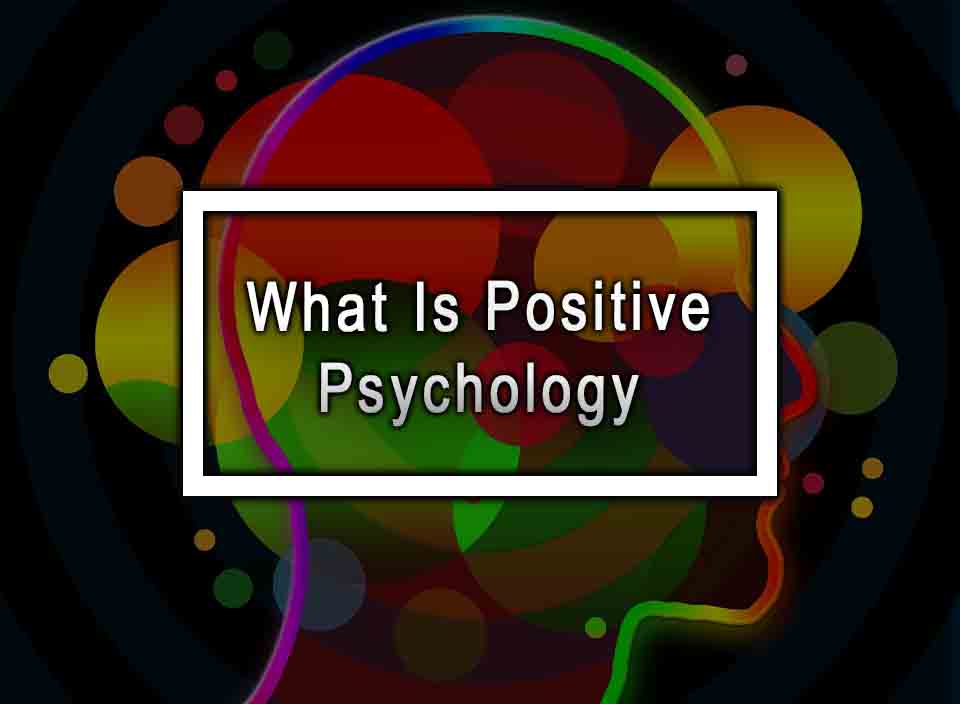What Is Positive Psychology? Before delving into what positive psychology is, it is essential to understand the context and why it has been gaining increased attention in recent years. Psychology is a field that focuses on studying the human mind, behavior, and mental processes. For many years, the focus of psychology was on identifying and treating mental disorders and other problems. However, this approach was limited in its scope, as it failed to acknowledge positive aspects of the human experience, such as happiness, contentment, and well-being. The traditional approach was found lacking, and a new approach known as positive psychology emerged in the late 1990s. This article will explain what is positive psychology, what it emphasizes, and its impact on individuals and society.
Table of Contents
ToggleWhat is positive psychology?
Positive psychology is the study of positive experiences and well-being, with a focus on identifying and cultivating strengths, virtues, and positive attributes. Unlike traditional psychology, which focused mainly on identifying and treating mental disorders, positive psychology emphasizes the positive aspects of human experience.
Positive psychology is not a new concept; its roots can be traced back to humanistic psychology, which emerged in the mid-twentieth century. Humanistic psychology emphasized positive aspects of human experience, such as self-actualization, personal growth, and self-awareness. Positive psychology builds upon this work by going beyond self-actualization to include the study of positive emotions, positive relationships, and fulfilling work.
What Is Positive Psychology? Positive psychology is not just about feeling better or being happy; it is also about leading a meaningful and fulfilling life. Positive psychology helps individuals identify their values, strengths, and goals and supports them in achieving these goals. Positive psychology assumes that individuals have the capacity for growth, development, and change and that individuals are capable of creating positive change in their own lives.
What does positive psychology Emphasize?
Positive psychology emphasizes several key themes, including the following:
Positive emotions
Positive psychology focuses on identifying and cultivating positive emotions, such as joy, contentment, and gratitude. Positive emotions have been linked to better health, higher levels of well-being, and better resilience in the face of adversity. Positive psychology emphasizes the importance of cultivating positive emotions in everyday life.
Positive relationships
Positive psychology emphasizes the importance of positive relationships in our lives. Positive relationships provide support, connection, and social capital, which are essential components of well-being. Positive psychology supports the development of healthy, supportive relationships.
Strengths and virtues
Positive psychology emphasizes the identification and cultivation of strengths and virtues. Strengths are positive traits and characteristics that contribute to an individual’s well-being. Virtues are positive qualities that contribute to a meaningful life. Positive psychology supports individuals in identifying and cultivating their unique strengths and virtues.
Meaning and purpose
Positive psychology emphasizes the importance of meaning and purpose in life. Meaning and purpose provide direction and motivation and contribute to overall well-being. Positive psychology supports individuals in identifying their values and goals and aligning their actions with their values.
What is the Impact of Positive Psychology on Individuals and Society?
What Is Positive Psychology? Positive psychology has had a significant impact on individuals and society. Here are some ways in which positive psychology has impacted both individuals and society:
- Improved well-being: Positive psychology has been linked to improved well-being. By focusing on positive emotions, relationships, strengths, and meaning, positive psychology has helped individuals lead more fulfilling lives.
- Increased resilience: Positive psychology has been linked to increased resilience. By cultivating positive emotions and relationships, individuals are better able to cope with adversity and bounce back from setbacks.
- Improved relationships: Positive psychology has emphasized the importance of positive relationships, which has led to improved relationships for individuals and society as a whole. By building connections and social capital, individuals and communities are better able to support one another.
- Improved work satisfaction: Positive psychology has been applied to the workplace, leading to improved work satisfaction and productivity. By identifying and cultivating strengths and pursuing meaningful work, individuals are more engaged and satisfied with their work.
Conclusion
What Is Positive Psychology? Positive psychology represents a paradigm shift in psychology, focusing on positive aspects of human experience and well-being. Positive psychology emphasizes the cultivation of positive emotions, relationships, strengths, and meaning, leading to increased well-being, resilience, and satisfaction in life. Positive psychology has had a significant impact on individuals and society, leading to improved relationships, work satisfaction, and well-being. As positive psychology continues to grow and expand, it offers individuals and communities a powerful tool for creating positive change in the world.
Positive Psychology FAQ
Here are the most common questions about what is positive psychology.
What are the key themes of positive psychology?
The key themes of positive psychology include happiness, well-being, resilience, positive emotions, positive relationships, strengths, meaning and purpose, and personal growth.
How can positive psychology help me?
Positive psychology can help you in various ways, such as:
- Enhancing your positive emotions and well-being
- Building your resilience and coping skills
- Developing your strengths and talents
- Finding meaning and purpose in your life
- Improving your relationships with others
- Managing stress and anxiety
- Increasing your overall satisfaction and fulfillment in life
What are some positive psychology interventions?
Positive psychology interventions are evidence-based practices that aim to promote well-being and positive emotions. Some examples include:
- Gratitude journaling
- Positive self-talk
- Mindfulness meditation
- Acts of kindness
- Strengths-based approaches
- Visualization and goal setting
- Positive affirmations
Is positive psychology only about happiness and positive emotions?
No, positive psychology is not just about happiness and positive emotions. It also addresses the challenges and difficulties of life and helps individuals to develop resilience, coping strategies, and personal growth. It acknowledges that negative emotions and experiences are a natural part of life but seeks to shift the focus toward building positive emotions and experiences.
Who are some of the founders of positive psychology?
Some of the founders of positive psychology include Martin Seligman, Mihaly Csikszentmihalyi, and Barbara Fredrickson. They are known for their research on topics such as positive emotions, flow, and resilience.
How is positive psychology different from traditional psychology?
Traditional psychology often focuses on diagnosing and treating mental illness or dysfunction, whereas positive psychology takes a strengths-based approach that emphasizes enhancing well-being and building resilience. Positive psychology also places a greater emphasis on the positive aspects of life, such as happiness, meaning, and positive relationships, whereas traditional psychology may focus more on negative experiences or past traumas. Finally, positive psychology interventions are often more focused on self-improvement and personal development, whereas traditional psychology interventions may be more focused on clinical treatment.
More like this: Sertraline Side Effects












